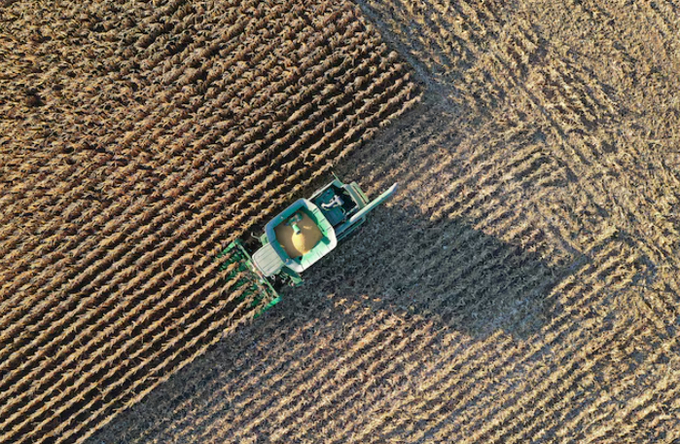May 22, 2025 | 20:16 GMT +7
May 22, 2025 | 20:16 GMT +7
Hotline: 0913.378.918
May 22, 2025 | 20:16 GMT +7
Hotline: 0913.378.918

A farmer harvests corn in this aerial photograph taken over Woodburn, Indiana, U.S., October 16, 2020. Picture taken with a drone October 16, 2020.
The money would support projects that reduce the amount of fertilizer needed for farms while maintaining yields, the agency said.
Agriculture accounts for about 11% of U.S. greenhouse gas emissions, according to the Environmental Protection Agency.
Nitrous oxide emissions, stemming in part from the application of nitrogen fertilizer, make up about half that amount, the agency said.
The ethanol industry, seeking growth opportunities as the rise of electric vehicles shrinks the gasoline market, stands to benefit from lucrative federal and state subsidy programs the more it can reduce the fuel's emissions.
Ethanol producers suffered a setback in April when the Treasury Department issued guidance making it nearly impossible for ethanol to qualify for a sustainable aviation fuel tax credit passed in the Inflation Reduction Act.
"Given the importance of agriculture to the energy sector and our economy, technologies that reduce fertilizer-related energy emissions associated with ethanol, while shrinking operational costs and maintaining crop yields for the American farmer, are essential," said Evelyn N. Wang, director of the DOE's Advanced Research Projects Agency-Energy program.
(RT)

(VAN) Attempts to bring down the price of the Japanese staple have had little effect amid a cost-of-living crisis.

(VAN) Fourth most important food crop in peril as Latin America and Caribbean suffer from slow-onset climate disaster.

(VAN) Shifting market dynamics and the noise around new legislation has propelled Trouw Nutrition’s research around early life nutrition in poultry. Today, it continues to be a key area of research.

(VAN) India is concerned about its food security and the livelihoods of its farmers if more US food imports are allowed.

(VAN) FAO's Director-General emphasises the need to work together to transform agrifood systems.

(VAN) Europe is facing its worst outbreak of foot-and-mouth since the start of the century.

(VAN) The central authorities, in early April, released a 10-year plan for rural vitalization.